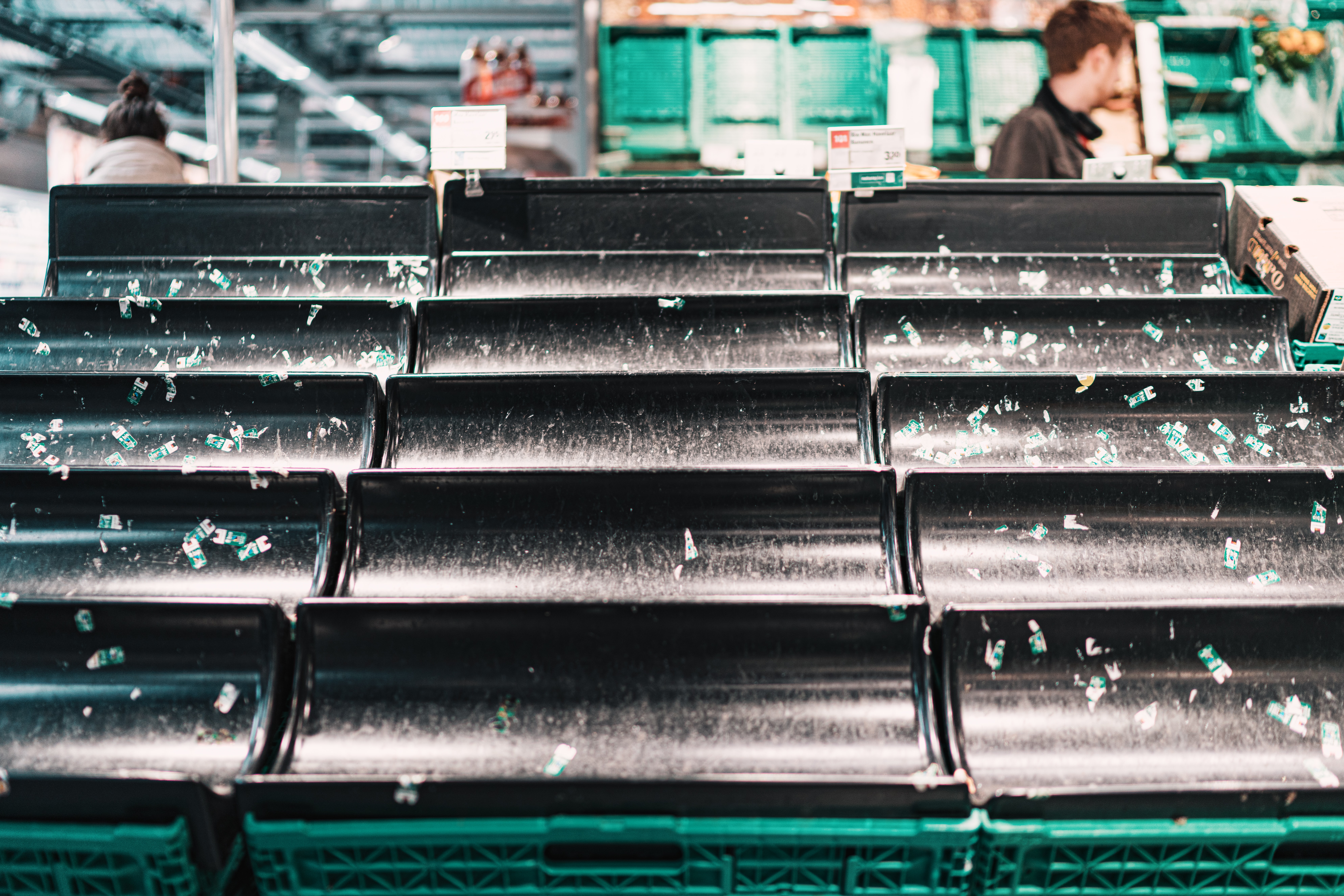With Covid-19 ramping up here in New Zealand, people are forgetting that we feed the world with our exports. Supermarket shelves are empty and some people are missing out on their basic needs.
Despite other countries going into lockdown, we are not at this stage. Unless self-isolation is required due to Covid-19 symptoms or a confirmed diagnosis, we don’t need to shop for two weeks’ worth of food.
Countdown has placed a two-item restriction of personal products, pasta and rice to ensure everyone has a chance to stock up. Countdown’s GM of corporate affairs, Kiri Hannifin says not to worry. “If I could get one message out, it would be that there’s plenty of food to go around. We are so lucky, so blessed, that we as a nation are a net producer of food. There is plenty of food for everyone. We can look after our communities,” says Hannifin.

We need to move towards a community mindset rather than every person for themselves. Our current mindset isn’t sustainable for both our pantries and staff. The negligent stockpiling of groceries is causing immense strain on staff within stores and the stomach of those less-privileged. In saying this, we must still be cautious of how we cast judgement on shoppers as people may need to go into self-isolation or they may not live within a short walk, bus-trip or drive to a supermarket.
Hannifin says the impact on staff has been negative. “Imagine working in a panic environment all day every day, the pressure on them is immense and unsustainable.”
Due to mass-hysteria, people who can only manage one grocery trip a week or those who live pay-check to pay-check are struggling to find necessary products in their local supermarket.
Massey University Philosopher Dr. Marco Grix says that you can easily work out if your shopping actions are immoral. While loading a case of tinned food into your trolley ask yourself, “What if everyone did that?” If the answer is the shelves will be cleared and others will miss out, you’ve got your answer.

Grix says he hopes that this might be the turning point to bring us all together. We might be able to learn how much we actually all need to survive for two weeks. He says that we all over-consume so the empty shelves could have more food on them if we only shopped for what we would realistically use.
Lower-income communities rely on affordable, non-perishable foods like tinned tomatoes, pasta, rice, and frozen vegetables to make budget-friendly meals. When people who are lucky enough to shop multiple times a week and can afford slightly more expensive products take these budget pantry staples, an issue evolves. It’s a sign of unrecognised privilege and the mindset we need to leave behind. Families and individuals are now having to buy less or spend more time shopping between multiple supermarkets.
Foodstuffs North Island CEO, Chris Quin says this is the time to be helping where you can. “There’s a wonderful community opportunity here (to pick up groceries for those in need) this is one very practical way that people might be able to look out for each other.”
In times like this, community support is the best strategy we can be using. Support your elderly and immune-compromised friends. Only buy what you need if you are lucky enough to still be in good health and the supermarkets are still open. If you can afford the next price tier of food, buy that and leave the cheaper items for those that can’t.
Lastly, be kind. Be kind to other shoppers and supermarket staff providing their service under the pressure of this pandemic. Wash your hands regularly and practice increased basic hygiene.
Remember, Healthline is just a free call away for advice if you are showing any symptoms or have been in contact with anyone diagnosed with Covid-19.







